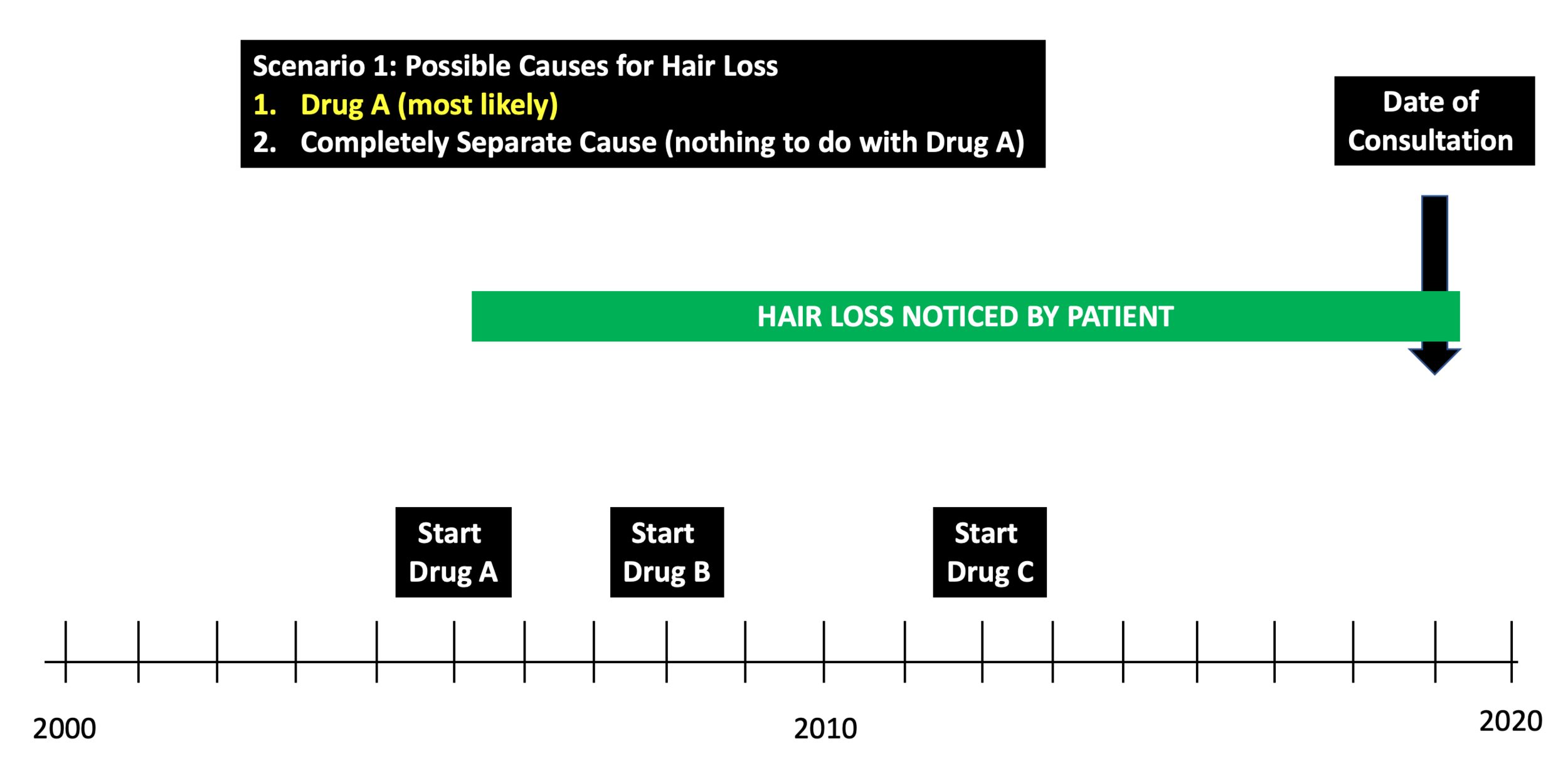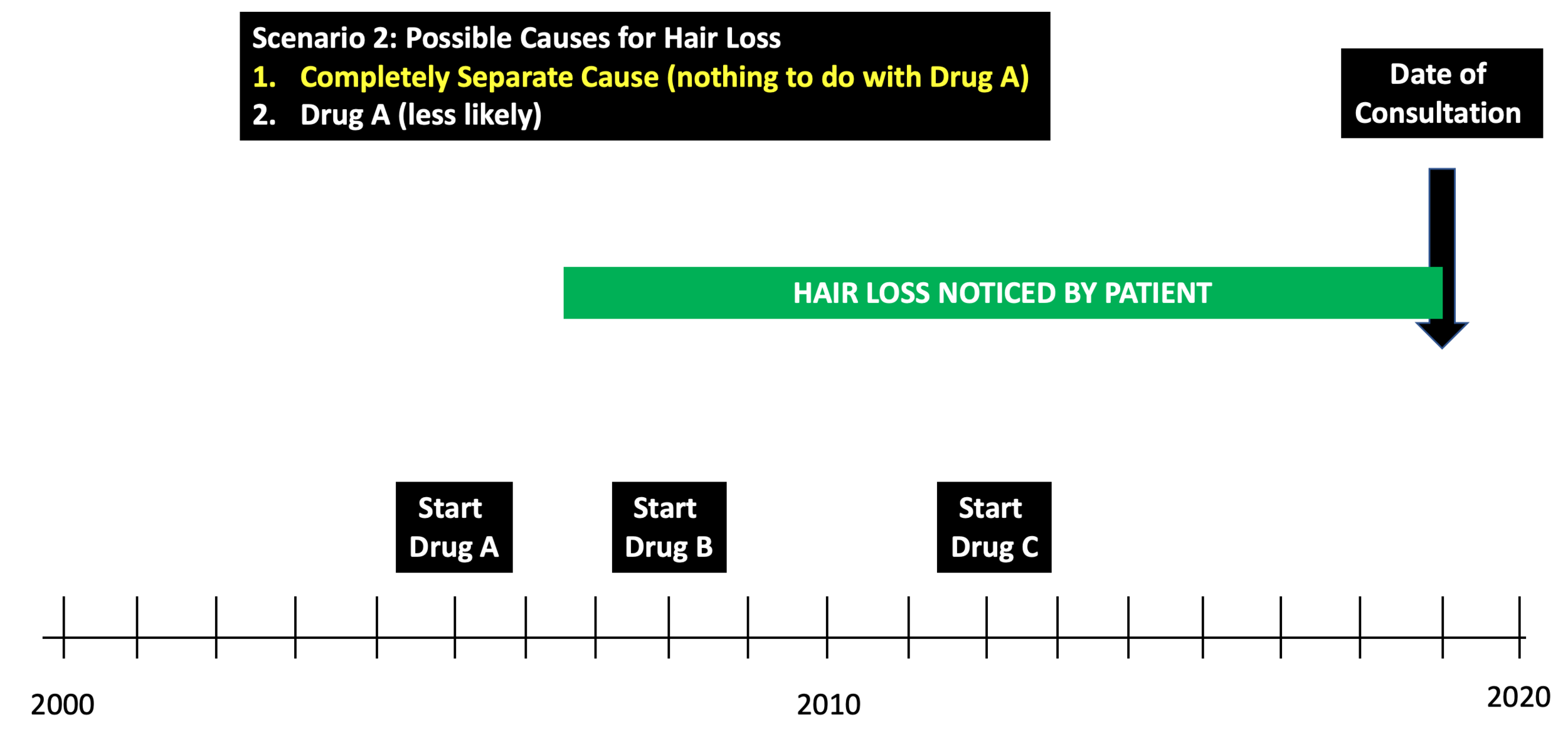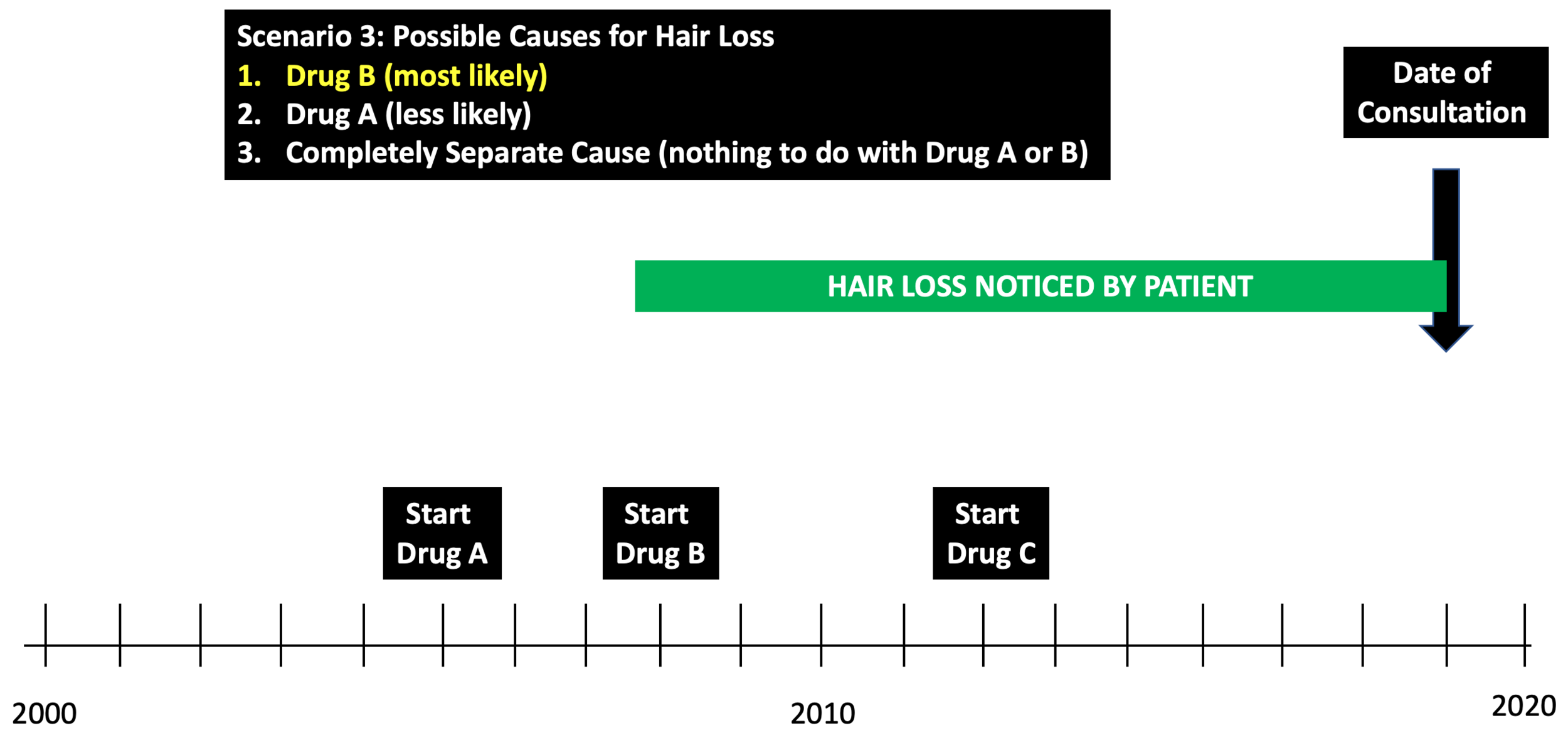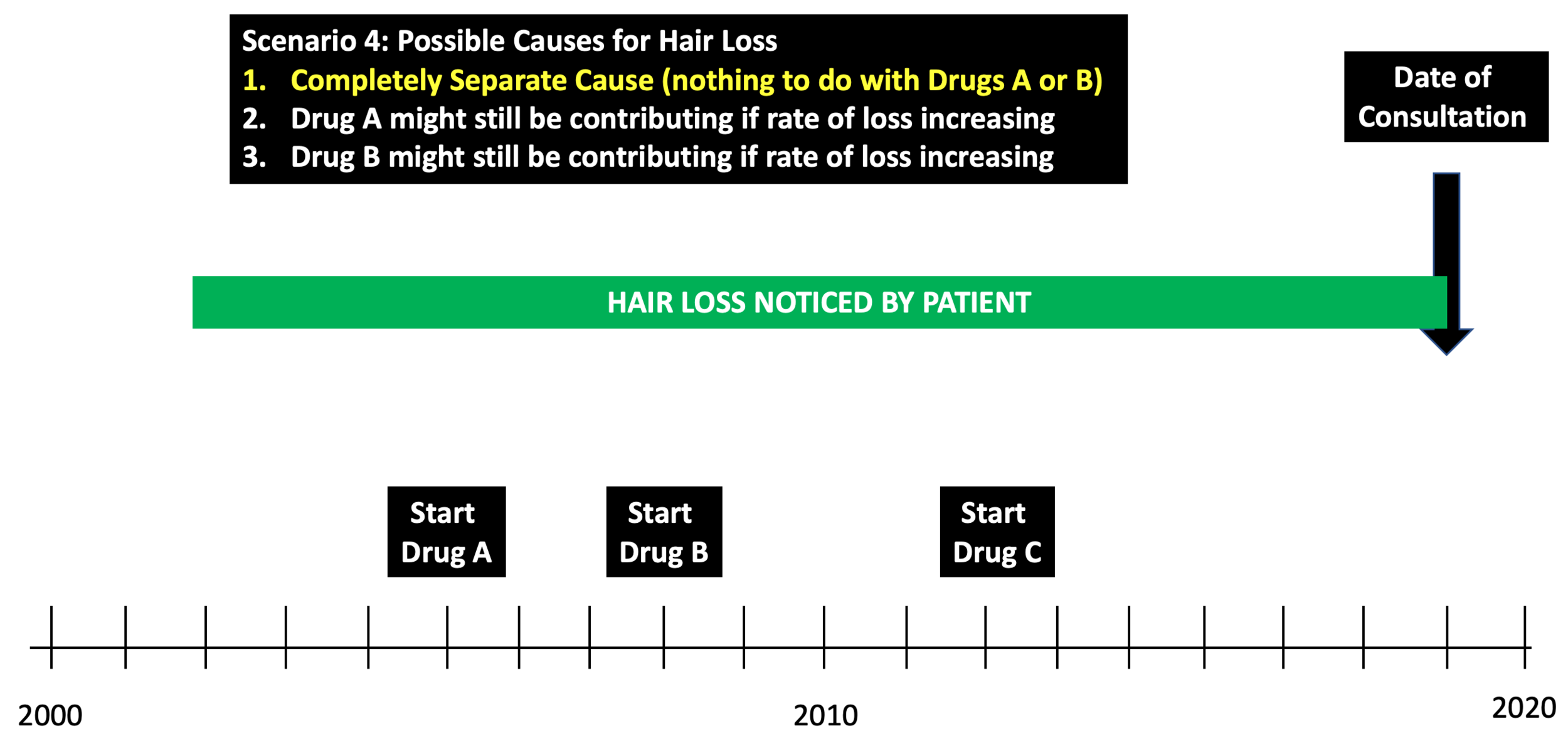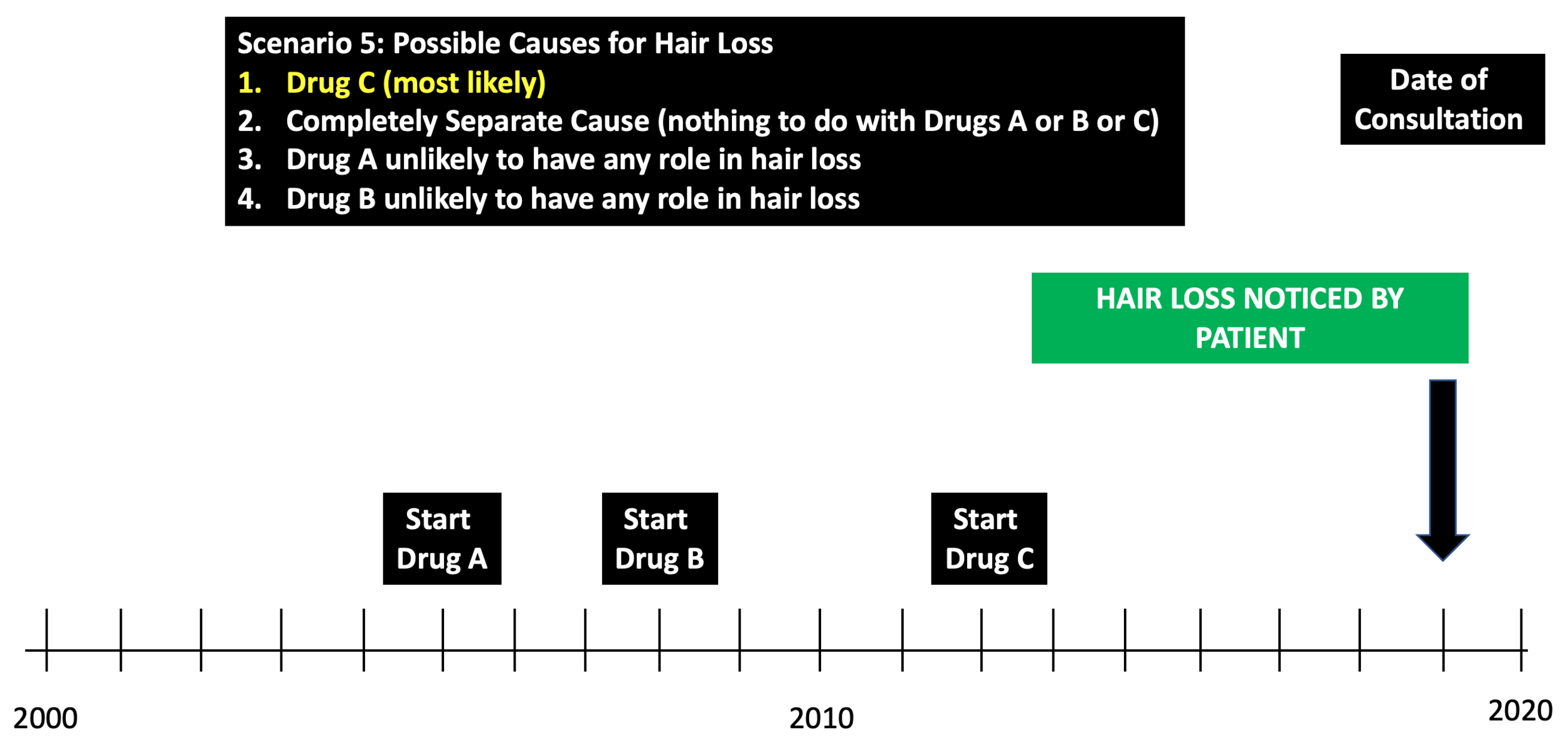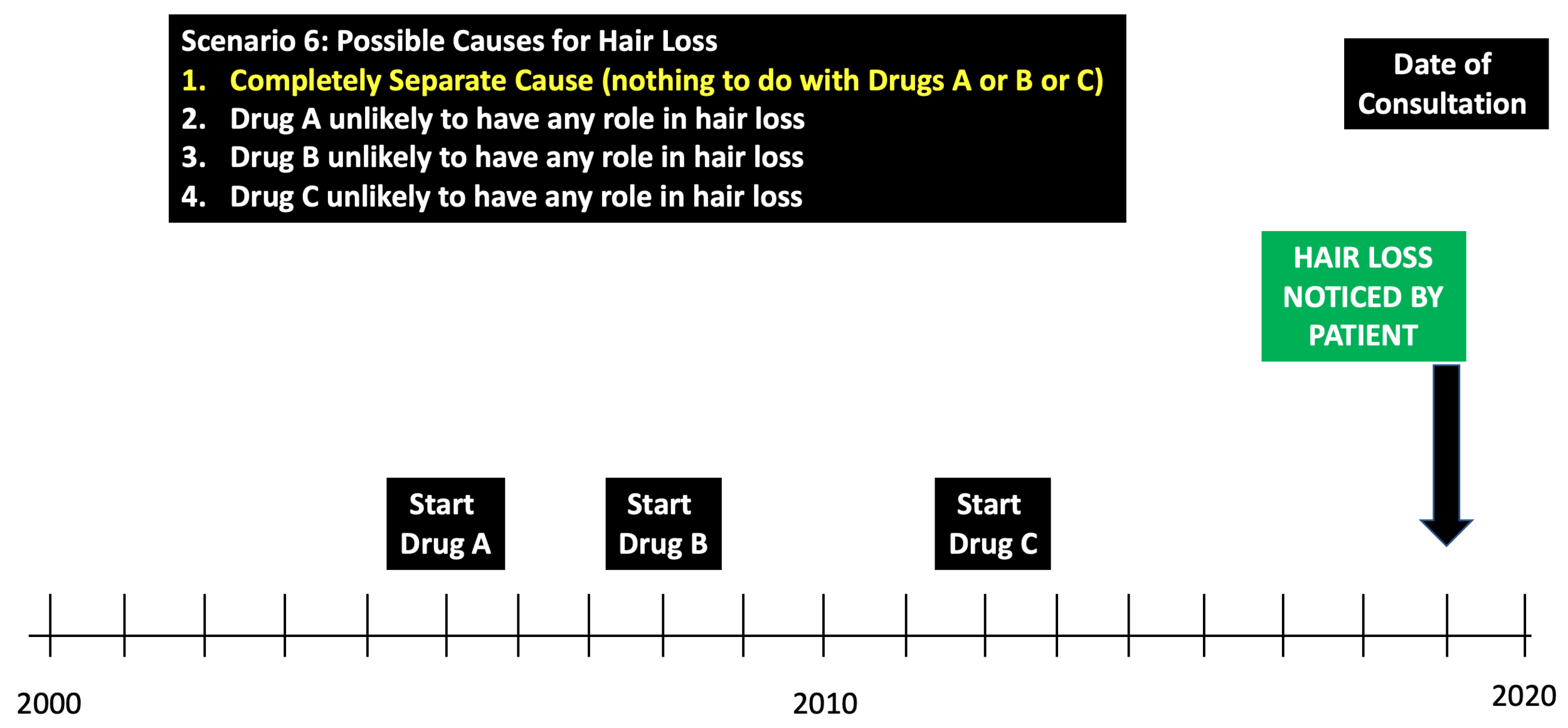Why am I losing hair in my 80s?
Excessive hair shedding at 87: What are the reasons?
I’ve selected this question below for this week’s question of the week. It allows us to discuss diagnosis of hair loss when it first starts after age 75 and how best to evaluate potential drug induced hair shedding. Here is the question….
QUESTION
I am an 87 year old female and want to know why I am losing so much hair when I wash it and after I comb it out? It's been going for many years now. It would be nice to know. My scalp itches, more shedding than I think is normal. I have Atrial fibrillation and take Amiodarone/200ng, Blood Thinner-Xarelto/20mg, Blood Pressure-Perindopril/4mg, Thyroid-Synthroid/88mcg and Cytomel/5mcg, Bladder-Solifenacin.
My doctor has only increased my thyroid meds. No other treatment. Hair loss mainly the top and frontal area.
The hair loss started in thee mid 70s and maybe before. I look like my hair is quite thin now. I try volumizing shampoos and curlers to try to make it look thicker.
ANSWER
Thanks for the question. There’s really a good way to determine the cause of your hair loss - and that is to share your story with a hair specialist and have him or her evaluate your scalp up close with trichsocopy (magnified imaging). If your dermatologist thinks a biopsy is necessary, that will be taken as well.
I’d like to discuss several important things. However, before we go further, I’d like to point out that the ideal way to diagnose hair loss is using what I termed the ”Diagnostic S.E.T.” I refer to these as the diagnostic “set” because theses 3 aspects all go together. These 3 items include:
1) the patient’s story
2) the findings uncovered during the process of the scalp examination including trichoscopy
3) the results of relevant blood tests.
The first letter of each of the three words 1) story, 2) examination and 3) tests spell out the word “S.E.T.” - again a helpful reminder of how the information obtained from reviewing each of these 3 aspects helps solidify a proper diagnosis.
The top 5 causes of hair thinning and shedding starting in the mid 70s and progressing into the 80s in the manner you have outlined here in your question is:
Medication induced telogen effluvium (esp blood pressure, cholesterol and blood thinning meds)
Telogen effluvium (other causes)
Immune based fibrosing alopecias (particularly one called lichen planopiliaris)
Age related thinning
Seborrheic Dermatitis and other causes of dermatitis
In this case, you are your doctors really need to sit down together to review the whole story if the whole story has not been fully reviewed. One needs to create what I call a “drug diary map” which outlines clearly when certain drugs were started and what the effect on the hair was soon after those drugs we're started.
Generally speaking, if changes in hair were noted within 1 year of starting a new drug there’s at least a reasonable chance that the new drug is implicated in the hair loss. Most drugs that cause drug induced shedding cause hair loss within 3-4 months of starting. Some drugs cause hair loss by other means other than telogen effluvium and hair loss is generally noted within 1 year in these situations. In some cases, the hair loss is so minor and slow that the patient does not really appreciate there has been loss for 18-24 months. That’s less common.
Creating a drug diary map is what needs to be done done. You and your doctors need to take a look at ALL the drugs you have used over the last 15 years and map out when the changes in your hair started to occur. Photos from past events can help (birthdays, parties, holidays, selfies). This exercise will at least give some idea as to whether one or more of your drugs are implicated. Sometimes it’s a drug that caused shedding in the past and has now been stopped but nevertheless triggered a hair loss phenomenon that still persists.
The Drug Diary Map
Drug diary maps are essential when evaluating if a drug might be implicated in a patient’s hair loss. Let’s take a look at a few scenarios. Let’s imagine a patient who comes to see me in 2019 with concerns about hair loss. The patient is using three drugs and thinks “drug C” is to blame because lots and lots has been written on the internet about drug C causing hair loss.
In this case, drug A is more likely than drug C in causing hair loss. If hair loss patterns changed dramatically after starting drug C then certainly Drug C might still be involved. This would be a scenario whereby a patient had one condition to start with (such as genetic hair loss) and then drug C caused hair loss as well. However, in the case where hair loss has been fairly constant from 2006 to 2019, it would be unlikely that drug B or C has any role.
With hair loss starting 1 1/2 yeasr after drug A was started, it’s unlikely drug A is involved. It’s not impossible just unlikely. Thee most likely cause of hair loss in this cases is something unrelated to medications used. it still possible that drug B and C are causing hair loss if hair loss suddenly worsened after drug B or C were started. This would bee a situation whereby the patent developed a first hair loss condition in 2006-2007 and then developed a second condition after using drug B or C.
In this example, hair loss starts soon after treatment with drug B is started. This strongly implicates drug B as a likely cause of hair loss.
In this scenario, hair loss occurred long before drugs A, B or C were started. It’s therefore unlikely the drugs A, B and c are causes of hair loss in this example. However, it hair shedding increased dramatically in 2008 or 2012 this might indicate that a second process causing hair loss has entered the picture..
In this example, hair loss is startling fairly close to the date drug c was started. This implicates drug C as a likely cause of hair loss. It by no means proves that it is the cause of the patient’s hair loss but it does implicate it.
In this common example patients first experience hair loss many years after mediations were started. Given that drug induced hair loss typically happens 3 months after starting a drug and is usually recognized by the patient to be happening within 6 months, this timing shown here makes it quite unlikely that drugs A, C and C are the cause of hair loss.
FInal Comment
A careful review of your story and examination of your scalp is what’s needed to determine what the cause of your hair loss. Many of the drugs on your list that you mention could be causing hair loss because studies have been done that show they can. Amidorone can cause hair loss - rarely. Perindopril can cause hair loss - rarely. Xarelto can cause hair loss - rarely. It does not mean that they necessarily are causing hair loss in your case - but it certainly means you and an expert need to review the whole story.
Other causes of telogen effluvium (hair shedding) are also important for you to review with your doctors. Chronic low iron, persistent thyroid dysfunction, nutritional issues, weight loss and systemic illnesses need to be evaluated further. You’ll need to review all your blood tests with your doctors - including ferritin, TSH, CBC, zinc. Other tests might be needed too. This list of blood tests is by not means all the blood tests you’ll need - others could be needed based on your story. If you have severe joint pain and morning stiffness for example, you might need evaluation by a rheumatologist. If you have had weight loss of unexplained origin, you’ll need this further evaluated.
Drug induced hair loss is at the top of the list for patient with new onset shedding after age 75. There are other causes that need to explored in your case. Scarring alopecia can start at any age and can simply become more noticeable in the 70s and 80s in some patients. Usually these are patients where the hair loss started in the 50s, 60s and 70s but was relatively asymptomatic and relatively low grade such that significant hair loss did not occur. For various reasons, scarring alopecias can worsen in some patients in the 70s and 80s and present with hair shedding.
Age related thinning, also known as senescent alopecia, is a type of hair loss that looks ike genetic hair loss but is different. It starts in the 70s and 80s and affects the mid scalp and crown and sometimes affects the hair diffusely in women too. It is often misdiagnosed as genetic hair loss (androgenetic hair loss).
Seborrheic dermatitis and other causes if dermatitis (irritant dermatitis, allergic contact) can cause hair loss in some. It’s rarely a cause of significant hair loss - although more profound cases of seborrheic dermatitis certainly can be a cause of hair loss.
I hope this helps. If you want to know the cause of your hair loss, you need to have all the steps reviewed above put into action to solve the mystery. You need an expert to review your entire story. The timing of starting these drugs needs to reviewed. Your blood tests need to be reviewed and more might be needed. Your scalp needs to be properly examined,. Depending on the results of these steps, you may or may not need a biopsy. A logical systemic approach will likely uncover the cause (or causes) of your hair loss. You may have more than 1 cause.

